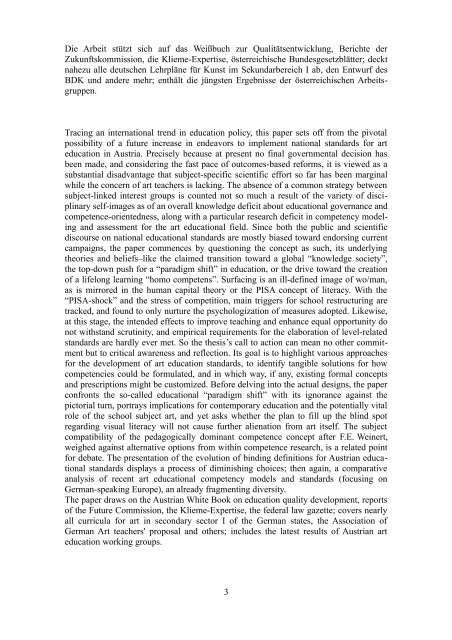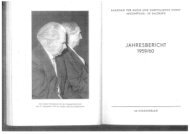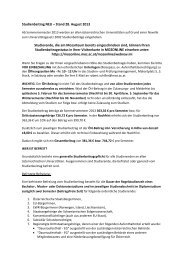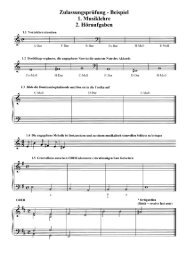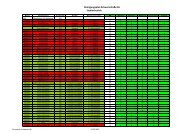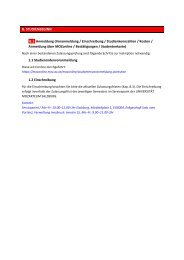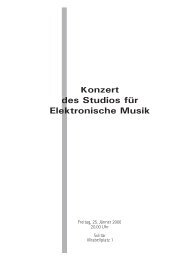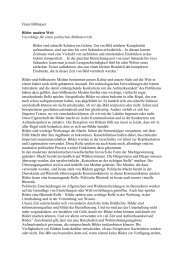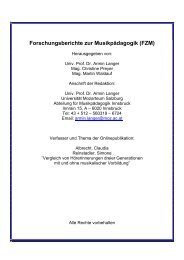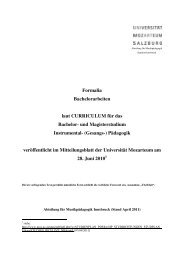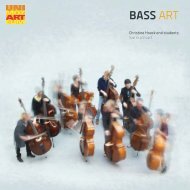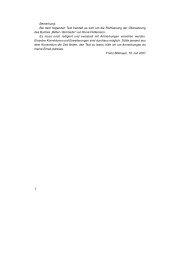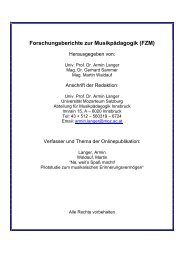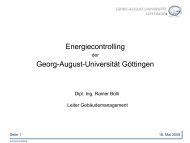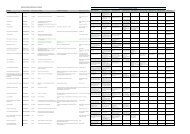Thema Bildungsstandards für die Bildnerische Erziehung - Mozarteum
Thema Bildungsstandards für die Bildnerische Erziehung - Mozarteum
Thema Bildungsstandards für die Bildnerische Erziehung - Mozarteum
Erfolgreiche ePaper selbst erstellen
Machen Sie aus Ihren PDF Publikationen ein blätterbares Flipbook mit unserer einzigartigen Google optimierten e-Paper Software.
Die Arbeit stützt sich auf das Weißbuch zur Qualitätsentwicklung, Berichte der<br />
Zukunftskommission, <strong>die</strong> Klieme-Expertise, österreichische Bundesgesetzblätter; deckt<br />
nahezu alle deutschen Lehrpläne <strong>für</strong> Kunst im Sekundarbereich I ab, den Entwurf des<br />
BDK und andere mehr; enthält <strong>die</strong> jüngsten Ergebnisse der österreichischen Arbeitsgruppen.<br />
Tracing an international trend in education policy, this paper sets off from the pivotal<br />
possibility of a future increase in endeavors to implement national standards for art<br />
education in Austria. Precisely because at present no final governmental decision has<br />
been made, and considering the fast pace of outcomes-based reforms, it is viewed as a<br />
substantial disadvantage that subject-specific scientific effort so far has been marginal<br />
while the concern of art teachers is lacking. The absence of a common strategy between<br />
subject-linked interest groups is counted not so much a result of the variety of disciplinary<br />
self-images as of an overall knowledge deficit about educational governance and<br />
competence-orientedness, along with a particular research deficit in competency modeling<br />
and assessment for the art educational field. Since both the public and scientific<br />
discourse on national educational standards are mostly biased toward endorsing current<br />
campaigns, the paper commences by questioning the concept as such, its underlying<br />
theories and beliefs–like the claimed transition toward a global “knowledge society”,<br />
the top-down push for a “paradigm shift” in education, or the drive toward the creation<br />
of a lifelong learning “homo competens”. Surfacing is an ill-defined image of wo/man,<br />
as is mirrored in the human capital theory or the PISA concept of literacy. With the<br />
“PISA-shock” and the stress of competition, main triggers for school restructuring are<br />
tracked, and found to only nurture the psychologization of measures adopted. Likewise,<br />
at this stage, the intended effects to improve teaching and enhance equal opportunity do<br />
not withstand scrutinity, and empirical requirements for the elaboration of level-related<br />
standards are hardly ever met. So the thesis’s call to action can mean no other commitment<br />
but to critical awareness and reflection. Its goal is to highlight various approaches<br />
for the development of art education standards, to identify tangible solutions for how<br />
competencies could be formulated, and in which way, if any, existing formal concepts<br />
and prescriptions might be customized. Before delving into the actual designs, the paper<br />
confronts the so-called educational “paradigm shift” with its ignorance against the<br />
pictorial turn, portrays implications for contemporary education and the potentially vital<br />
role of the school subject art, and yet asks whether the plan to fill up the blind spot<br />
regarding visual literacy will not cause further alienation from art itself. The subject<br />
compatibility of the pedagogically dominant competence concept after F.E. Weinert,<br />
weighed against alternative options from within competence research, is a related point<br />
for debate. The presentation of the evolution of binding definitions for Austrian educational<br />
standards displays a process of diminishing choices; then again, a comparative<br />
analysis of recent art educational competency models and standards (focusing on<br />
German-speaking Europe), an already fragmenting diversity.<br />
The paper draws on the Austrian White Book on education quality development, reports<br />
of the Future Commission, the Klieme-Expertise, the federal law gazette; covers nearly<br />
all curricula for art in secondary sector I of the German states, the Association of<br />
German Art teachers' proposal and others; includes the latest results of Austrian art<br />
education working groups.<br />
3


